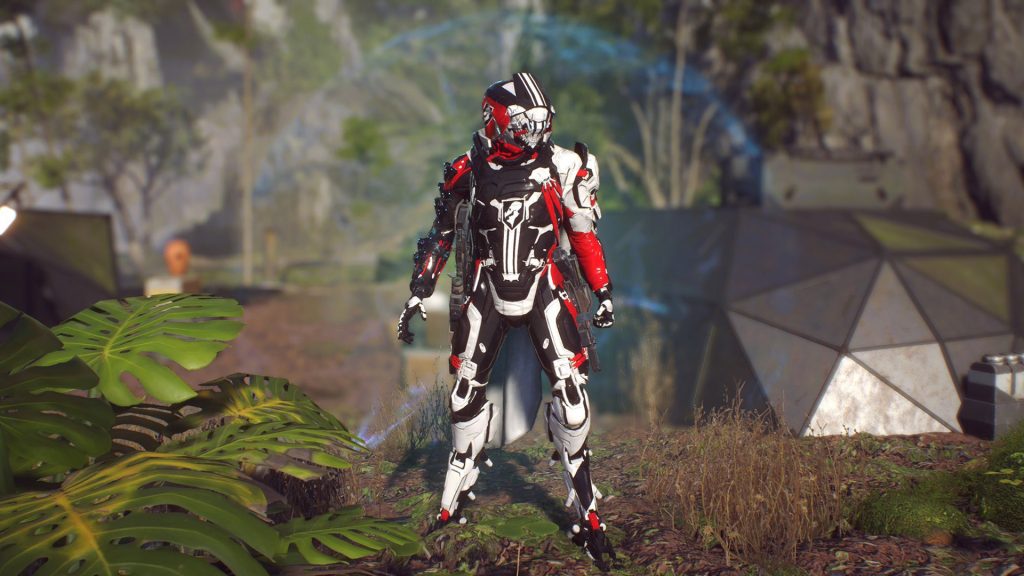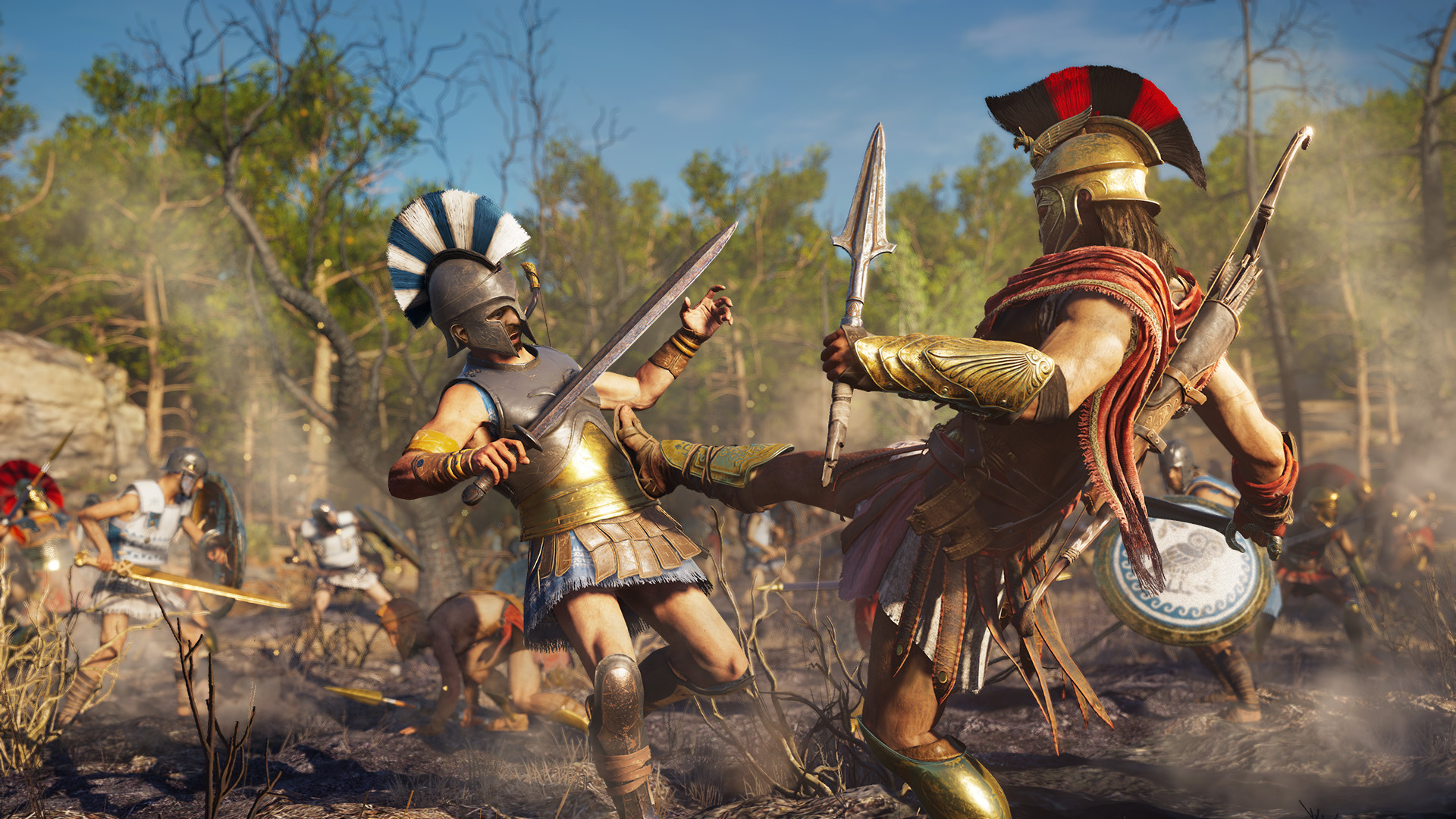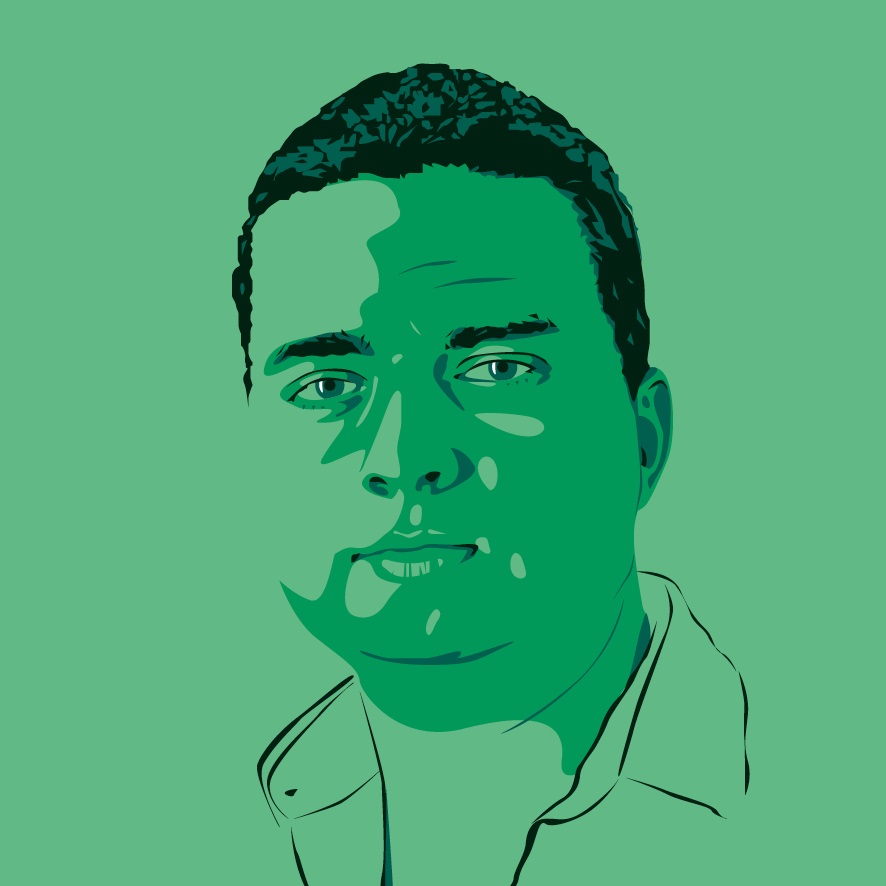Old BioWare has become a distant memory
Where BioWare could go next following the disappointment of Anthem.

From the outside looking in, BioWare has had a tough time of it lately. Over four years since Inquisition, we've only had one recent teaser for a fourth Dragon Age, despite the last game being the studio's most successful launch in its history. Mass Effect Andromeda was to most players a disappointment, with its planned DLC never seeing the light of day. Anthem, meanwhile, doesn't feel ready for launch—it's a slight-feeling game that doesn't invoke the same excitement the studio's previous series did. Counterpoint: The Old Republic ticks away in the background.
BioWare's games have always been changing. Mass Effect was arguably the last big transition, an RPG shaped primarily for shooter players during an era dominated by Gears of War—its second and third entries more so. To fans of the cRPGs that made its name, Dragon Age: Origins probably felt like the last gasp of a previously PC-focused studio. Anthem represents another transition—albeit, a far less successful one—into the increasingly overpopulated space of shooters that want to keep you playing forever by using loot or cosmetics as an incentive. It was okay for BioWare to want to change again and try something new, but too many of its strengths got buried in this particular attempt to branch out.
Pondering BioWare's future, the most optimistic scenario to me is this: Anthem gets back on track and finds a large enough, steady audience to keep it growing until it reaches its full potential, much like The Division did. That might take a while. Next up, BioWare makes that Dragon Age game we finally got a hint of last year, and it shows everyone it can make a singleplayer RPG on the same level it used to. And after that, almost a decade into the future, these vague promises of a new Mass Effect turn into an actual game that gets people excited about that universe once more. Hopefully, too, there'd be a few unexpected surprises along the way.
The reality will probably turn out pretty differently, but in the short term, the studio has been great at accepting and addressing criticism of Anthem's flaws like its loot system. It's been vocal in the additions it plans to make to the game, which is also a positive step. But it remains that BioWare has had a disappointing few years, and that other games are now better at the things it used to do so well.
Anthem is disappointing in many tiny ways, but the biggest problem to a long-time BioWare fan is surely how the story is presented. There's almost no unity between Fort Tarsis, where all of the story content is siloed off, and the world where you fly around with three other players in cool robot armour. The conversations at Tarsis give you few reasons to be invested—only by the end of the campaign did I start to care about the stories of Faye and Haluk, two of your character's oldest companions. And at that point, the story was over, feeling like half a game that was padded out with needless side quests.
BioWare had the right to make something new—but Anthem is simply not as good as its other games.
The competition and the pretenders

I feel like the games around BioWare have thrived while it's struggled, and that there's a sense of missed opportunity as a result. Last year, Assassin's Creed Odyssey brought choices to the series for the first time, in a move undoubtedly inspired by BioWare's own successful attempts to do so. It's weird to me that Assassin's Creed, a series I previously associated with boring main characters and naff plots about real historical figures, has eaten BioWare's lunch, yet here we are. The strong response to Odyssey's Kassandra, for example, mirrors the passionate way people used to talk about Mass Effect's characters.
Keep up to date with the most important stories and the best deals, as picked by the PC Gamer team.
It's interesting to see how else that open world RPG space has moved on around the studio. Mega-selling PS4 game Horizon: Zero Dawn features character conversations similar to those of Mass Effect. In terms of competitors, The Witcher 3 emerged as the greatest blockbuster RPG of its generation, not long after the arrival of Inquisition. Obsidian, of course, has its roots in cRPGs as well—and seeing them announce something like The Outer Worlds is exciting because it plays to their traditional strengths.
There's definitely still a place for BioWare to be doing what it does best—and the announcement of a title-less Dragon Age before Anthem was even released feels like a statement of intent. The reality remains that someone decided to release Anthem last week, when it clearly would have benefitted from extra time.
I really hope BioWare's next project is a huge success—I think it's a victim of overwhelming expectations, partly driven by the fact that people have been so emotionally invested in its past games. I've seen the story told many times about how BioWare turned its back on its history since it moved away from making classic RPGs, onto the action games it's now best known for.
You know what? I reject that. Those games meant a lot to me. Mass Effect 2's set of characters had a bigger impact on me than that of any game from the last decade, and even when Dragon Age 2 trapped me in Kirkwall for tens of hours, BioWare knew how to show me a good time. A lot of years have passed, though, and games are not in the same place they used to be.
It's not fair of me to ask BioWare to make the same games it once did, when the studio itself is bound to have changed in the meantime. I just wish Anthem was better, and that I could get as invested in it as I wanted to be.
When trying to predict what happens to BioWare next, I focus on what the studio's General Manager Casey Hudson outlined as its mission statement in May of last year.
"We create worlds of adventure, conflict, and companionship that inspire you to become the hero of your story."
To me, Anthem only half-achieved those things. But I hope I'll someday play another BioWare game that hits all of them at once.


